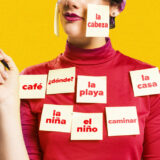EASY TO LEARN SPANISH TO SAVE MONEY & ENJOY COSTA RICA EVEN MORE!
To greatly enhance your time in Costa Rica, we strongly suggest learning these Spanish words. The Costa Ricans will be even more super friendly and more “discount” agreeable when they know that you are at least trying to speak “Español.”
You already know a whole bunch of words in Spanish, so use those words as guides to pronounce the vowels:
(“a” is always like in taco; “i” always like in si’; “o” always like in no; “e” always like in day; “u” always like in burrito or boo!
You have no excuse, its a helluva lot easier than English!
An easy way to learn Spanish is either with Rosetta Stone, Duo Lingo; or google it….
One more thought: The use of the term “Gringo” is not negative as in other latin countries, its just a descriptive term,
like gordo-fat, flaca-skinny, china for those with asian type of eyes, negro for those family members with the best tan; etc…
To learn Spanish for Costa Rica, we suggest you study diligently the words below.
Costa Rica – co-sta-ree-ca-Please pronounce the name of this country correctly. The “O” in spanish is ALWAYS “oh”. And who lives in Costa Rica? Ticos=males and Ticas=females, Gringos, Gringas, Chinos, Chinas, Latinos, Latinas, etc.
Jaco: ha CO NEVER EVER say: jay co….
Playa Hermosa: ply-ya air-Mo-sa This really will help you with Taxis!
¡Buenas! – bwe-nas – The simple, buenas is a standard greeting, and may be used morning, noon, or night, on the street, entering a store, everywhere. The “A” in Spanish is ALWAYS pronounced like the “A” in mama.
¿Hola, Cómo Está? – o la, co mo eh sta? -Hi or hello, how are you?
¿Muy bien, Gracias, y usted? mooee bee “n” , gra si ahs, ee oos-ted or ee two? – I’m fine thanks, and you? The ee two is for previously known people, or much younger than you.
¿Cuánto vale? – kwan-to val-eh – How much does it cost? In Mexico, and sometimes here, “cuanto cuesta”
¿Tiene cuartos? – T’yen-neh kwar-toes – Do you have any hotel rooms?
¿CUÁNTO? – kwan toe – How much? (Look as shocked as possible when hearing the answer!)
Pura Vida – Poo-ra Vee-da – this is the super famous Costa Rican phrase, and the answer to almost any question or comment. Usually as a greeting or replying to , “como esta” (how are you?)
CERVEZA cer-vey-sa is more commonly used by Costa Ricans, and hooray Jaco has lots of places to try Costa Rican excellent “micro brews” and we even have our own Micro brewery called “Puddlefish”, with great beers and excellent food. (Most Gringos order Imperial their first trip before trying the more “sophisticated” & expensive Bavaria -gold, light or dark, Another popular local beer is Pilsen or Bohemia and lately lots of European imports ). Ba-va-ree-a por fah-vor – I’d like a ……… please.
Taxi – Taxi Look for the officially licensed ones with meters called “maria” And know that its ok to ask to if they have a meter, Say “tiene maria?” when entering a cab. Tea n nay Ma ree a…..
¿Dónde está el banco? – Don-day es-tah el ban-co – Where is the bank? (don’t faint when you see the lines on payday at national banks. Go to the many private banks that exist.)
¿Dónde puedo cambiar plata? – Don-day pweh-do cam-bee-ar pla-ta – Where can I change money? (YOU MUST BRING YOUR PASSPORT TO CHANGE EVEN $20 AND OF COURSE BANKS PAY THE HIGHEST RATE!)
¿Dónde puedo comprar….? – Don-day pweh-do com-prar – Where can I buy….?
Si, yo quiero comprar una Hermosa bungalo de Jeff de CR beach. – See, joe kee yay ro com-prar oona Hermosa Bungalow de Jeff de CR Beach – Yes, I want to buy an Hermosa bungalow from Jeff of CR beach!
¿El menú, por favor? – el may new, por fa-vor – Menu, please?
¿La cuenta, por favor? – la kwen-ta por fa-vor – Check, please? (followed by funny hand scribbling movement!)
¿El bano, por favor? – el ban-yo por fa-vor – Bathroom please ALSO: Ser VEE cios Por fa vor
¡No molesta me! – no may mo-les-ta – Don’t bother me! Also “Sale” sa lay sa lay
¡Qué linda! – kay leen da – how pretty!
Está bien. – ess-ta byen – It’s fine or it’s ok
Hasta Luego. – ahs-ta luway-go – See you later. (used much more than adios)
Ciao or Chao. – Chow- Bye (lately more popular than hasta luego)
Con Mucho Gusto! – Con moo-cho goo-sto – My pleasure. (used instead of your welcome)
Que dicha! or Ay, que dicha! – eye, kay deecha- That’s great. (Effective with sarcasm!)
Drivers: please remember that traffic signs that read before a bridge “Ceda” means “yield right of way” -you have to stop! Also one cool thing here is the blinking of the brights to signal traffic cop or caution ahead.
Pedestrians BE CAREFUL: please remember to look both ways, because unlike many places in the States, YOU HAVE NO RIGHTS here!!!
For Cellular phone users: Messages like “su llamada no se puede ser tramitada en esto momento” (your call cannot be completed at this time) are frequent. Placing a call to a known number sometimes obtains the message “el numero marcado no corresponde a ningun de nuestros clientes” (the number called does not correspond to any one of our subscribers) is another frequent message received by callers.
The messages are produced when the cellular phone being called is within an area that is not functioning or has poor coverage.
VERY IMPORTANT TO MEMORIZE:
A – always pronounced ah, as in mama
E – always pronounced as a long A as in “play” or Chile (CHI lay)
I -always pronounced ee, as in feet, bee
O -always pronounced as oh. Its CO sta Rica, never ever Casta Rica,
U -always pronounced oo, as in too, pool.
B -Similar to the English ‘b’ but less between vowels it is pronounced very softly so that the lips touch only slightly.
C -As in English, before a, o and u it is pronounced as a K, as in can Costa Rica
Before e or i the c is pronounced as an s as in cent.
CC – Pronounced very similar to the cc in accident
D – Similar to the English ‘d’ in ‘bed’
G – Before A, O or U it is pronounced as the G in get
– Before E or I it is pronounced like the English H but more emphatic.
H – Always silent in Spanish. Hotel is pronounced otel
J Always pronounced like the English H but more emphatic
LL Always pronounced like J in Joe (Spanish example: yo )
ñ – This Spanish character is pronounced NY as in canyon
R – Slightly trilled
When it is the first letter of a word it is strongly trilled.
RR – Always strongly trilled except in Costa Rica
V -In Spain and many parts of South America there is no difference between the ‘v’ and the ‘b’ WHICH is why words so often misspelled!
Y -pronounced as the English Y except when it stands alone (y is Spanish for and) then it is pronounced ee as in tree
Z – In South America the ‘z’ is pronounced as the English S;
QUE – pronounced kay
QUI -pronounced kee as in keep
GUE – pronounced ge as in guest, and get
GUI – pronounced gee as in geese
GUA- guacamole, anyone? (sometimes soft g, like wuacamole…
The remaining letters are pronounced as they are in English with only very slight variations.
Helpful Words and Phrases
INTRODUCTIONS AND GREETINGS
I’d like to introduce you to Mr. Vargas. Quisiera presentarle al señor Vargas. kee-SYEH-rah preh-sehn-TAHR-leh ahl seh-NYOHR VAHR-gahs
Pleased to meet you. Encantado. ehn-kahn-TAH-doh
A pleasure. Mucho gusto. MOO-choh GOOS-toh
I am Ramon Diaz.
Soy Ramon Díaz. soy Ramon Díaz
This is my wife. Es mi esposa. ehs mee ehs-POH-sah
·colleague. ·colega. ·koh-LEH-gah
How are you? Cómo está usted? KOH-moh ehs-TAH oos-TEHD?
Fine, thanks. And you? Bien, gracias. Y usted? BYEHN, GRAH-syahs. Ee oo-TEHD?
Where do you live? Dónde vive? DOHN-deh VEE-veh?
I live in the United States. Vivo en los Estados Unidos. VEE-voh ehn lohs ehs-TAH-dohs oo-NEE-dohs
MAKING FRIENDS
It’s so good to see you. Un gusto verle. oon GOOS-toh VEHR-leh
Would you like a drink? Le gustaría una bebida? leh goos-tah-REE-ah OO-nah beh-BEE-dah?
With pleasure. Con gusto. kohn GOOS-toh
Cheers! ¡Salud! sah-LOOD!
Gladly. Con mucho gusto. kohn MOO-choh GOOS-toh
TALKING ABOUT LANGUAGE
Do you speak English? Habla usted inglés? AH-blah oos-TEHD en-gles?
I speak a little Spanish.
Hablo un poco de español.
AH-bloh oon POH-koh deh ehs-pah-NYOHL
Can you understand me? Me comprende? meh kohm-PREHN-deh?
Please repeat that. Puede repetir eso? PWE-deh rreh-peh-teer EH-soh?
Can you write that? Me lo escribe? meh loh ehs-KREE-beh?
How do you say…..in Spanish? Cómo se dice…..en español?
KOH-moh seh DEE-seh…..ehn ehs-pah-NYOHL?
Could you translate this? Puede traducir esto? PWEH-deh trah-doo-SEER EHS-toh?
Numbers
0 zero cero
1 one uno (m), una (f)
2 two dos
3 three tres
4 four cuatro
5 five cinco
6 six seis
7 seven siete
8 eight ocho
9 nine nueve
10 ten diez
11 eleven once
12 twelve doce
13 thirteen trece
14 fourteen catorce
15 fifteen quince
16 sixteen dieciséis
17 seventeen diecisiete
18 eighteen dieciocho
19 nineteen diecinueve
20 twenty veinte
21 twenty-one veintiuno
22 twenty-two veintidós
30 thirty treinta
31 thirty-one treinta y uno
40 forty cuarenta
50 fifty cincuenta
60 sixty sesenta
70 seventy setenta
80 eighty ochenta
90 ninety noventa
100 one hundred cien
101 one hundred and one ciento uno
200 two hundred doscientos
300 three hundred trescientos
400 four hundred cuatrocientos
500 five hundred quinientos
600 six hundred seiscientos
700 seven hundred setecientos
800 eight hundred ochocientos
900 nine hundred novecientos
1,000 one thousand mil
2,000 two thousand dos mil
1,000,000 one million un millón
2,000,000 two million dos millones
Days of the Week
Monday lunes
Tuesday martes
Wednesday miércoles
Thursday jueves
Friday viernes
Saturday sábado
Sunday domingo
Spanish Days of the Week Flash Cards (requires a Java enabled browser)
Months
January enero
February febrero
March marzo
April abril
May mayo
June junio
July julio
August agosto
September septiembre
October octubre
November noviembre
December diciembre
Spanish Months Flash Cards (requires a Java enabled browser)
Eating
napkin servilleta
fork tenedor
spoon cuchara
knife cuchillo
plate plato
water agua
bread pan
butter mantequilla
tea té
coffee café
salt sal
pepper pimienta
Back to top
Colors
black negro
blue azul
brown marrón, café
green verde
grey gris
orange naranja, anaranjado
pink rosado
purple violeta, morado
red rojo
white blanco
yellow amarillo
Back to top
Family
husband esposo, marido
wife esposa
children niños
son hijo
daughter hija
father padre, papá (informal)
mother madre, mamá (informal)
brother hermano
sister hermana
grandfather abuelo
grandmother abuela
uncle tío
aunt tía
nephew sobrino
niece sobrina
cousin primo (m), prima (f)
brother-in-law cuñado
sister-in-law cuñada
father-in-law suegro
mother-in-law suegra
son-in-law yerno
daughter-in-law nuera
Back to top
Directions
left Izquierda
right Derecha
far Lejos
near Cerca
street Calle
avenue Avenida
north Norte
south Sur
east Este
west Oeste
The Guide to Costa Rican Spanish by Christopher Howard M.A.
Words That Don’t Need Translating
There are literally thousands of Spanish words that are easy to understand for English speakers. All you have to do is concentrate on the English within these words and pronounce them with a Spanish accent.
Easy Words:
banana – banana
chocolate – chocolate
color – color
doctor – doctor
hotel – hotel
idea – idea
natural – natural
radio – radio
taxi – taxi
diccionario – dictionary
dieta – diet
moderno – modern
música – music
béisbol – baseball
café – coffee, cafe
comercial – commercial
especial – special
estúpido – stupid
familia – family
fotografía – photography
limón – lemon
minuto – minute
nervioso – nervous
noviembre – November
operación – operation
Refrigerador(a) – refrigerator
teléfono – telephone
vaccación – vacation
¡Buenos días!
bway-nohs dee-ahs
Hello! / Good morning! ¡Buenas tardes!
bway-nahs tard-ays
Good afternoon! ¡Buenas noches!
bway-nahs noh-chays
Good evening! / Good night!
¡Hola! / ¡Chao!
oh-lah / chow
Hi! / Bye! Adiós.
ah-dee-ohs
Good bye. Por favor.
por fah-bor
Please.
Hasta luego.
ah-stah loo-ay-go
See you later. Hasta pronto.
ah-stah prohn-toh
See you soon. Hasta mañana.
ah-stah mahn-yahn-ah
See you tomorrow.
(Muchas) Gracias.
(moo-chahs) grah-see-ahs
Thank you (very much). De nada.
day nah-dah
You’re welcome. Bienvenidos
byen-veh-nee-dohs
Welcome
Lo siento
loh see-ehn-toh
I’m sorry Con permiso / Perdón
kohn pehr-mee-soh / pehr-dohn
Excuse me / Pardon ¡Vamos!
bah-mohs
Let’s go!
¿Cómo está usted?
koh-moh ay-stah oo-sted
How are you? (formal) ¿Cómo estás?
koh-moh ay-stahs
How are you? (informal) ¿Qué tal?
kay tahl
How’s it going?
Bien / Muy bien
bee-ehn / moy bee-ehn
Good / Very good Mal / Muy mal / Más o menos
mahl / moy mahl / mahs oh may-nohs
Bad / Very bad / OK Sí / No
see / noh
Yes / No
¿Cómo se llama usted?
koh-moh say yah-mah oo-sted
What is your name? (formal) ¿Cómo te llamas?
koh-moh tay yah-mahs
What is your name? (informal) Me llamo…
may yah-moh
My name is…
Mucho gusto. / Encantado.
moo-choh goo-stoh / en-cahn-tah-doh
Nice to meet you. Igualmente.
ee-guahl-mehn-tay
Same here. Señor / Señora / Señorita
sayn-yor / sayn-yor-ah / sayn-yor-ee-tah
Mister / Mrs. / Miss
¿De dónde es usted?
day dohn-day ehs oo-sted
Where are you from? (formal) ¿De dónde eres?
day dohn-day eh-rehs
Where are you from? (informal) Yo soy de…
yoh soy day
I’m from…
¿Cuántos años tiene usted?
quahn-tohs ahn-yohs tee-ay-nay oo-sted
How old are you? (formal) ¿Cuántos años tienes?
quahn-tohs ahn-yohs tee-ayn-ays
How old are you? (informal) Yo tengo _ años. yoh tayn-goh ahn-yohs
I am __ years old.
¿Habla usted español?
ah-blah oo-sted eh-spahn-yol
Do you speak Spanish? (formal) ¿Hablas ingles?
ah-blahs een-glehs
Do you speak English? (informal) (No) Hablo…
noh ah-bloh
I (don’t) speak…
¿Entiende usted? / ¿Entiendes?
ehn-tyen-deh oo-sted / ehn-tyen-dehs
Do you understand? (formal / informal) (No) Entiendo.
noh ehn-tyen-doh
I (don’t) understand. Yo (no lo) se.
yoh noh loh seh
I (don’t) know.
¿Puede ayudarme?
pweh-deh ah-yoo-dar-meh
Can you help me?
Claro que sí
klah-roh keh see
Of course















 Sending...
Sending...